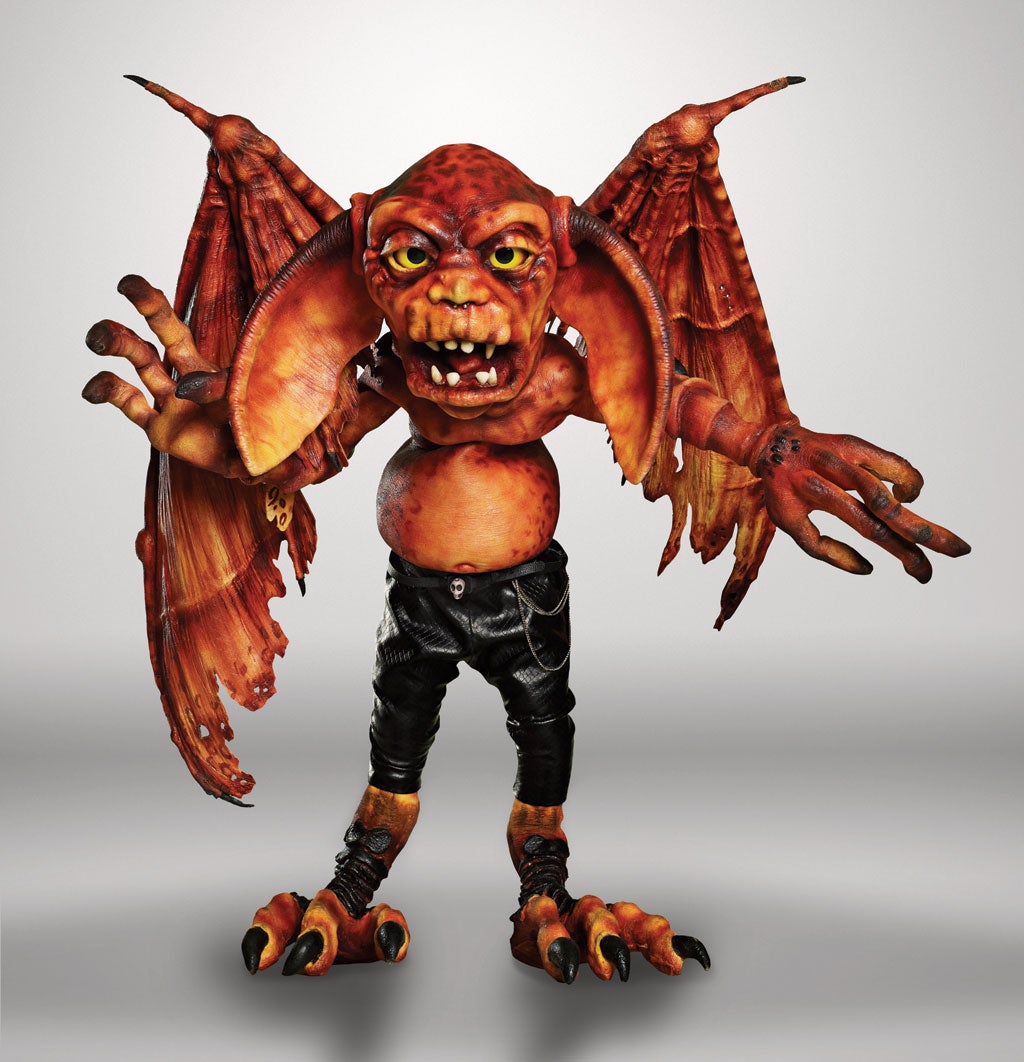TV to unleash your little monster: The best family viewing
Parents (and kids) rejoice! A new wave of fantastic family entertainment is here

On paper, Yonderland shouldn’t have worked. In an era dominated by knowing Disney-style tween shows and animated superhero spin-offs, a show deliberately harking back to 1980s films such as Labyrinth and The Dark Crystal – featuring a multi-tasking mum on a quest to save a fantasy world, aided by a puppet and a talking stick – should have seemed creaky and ludicrous.
And yet Sky1’s Sunday-night comedy has been a success. Raved about by critics, it pulls in an average of 1.2 million viewers, a great ratings figure for a non-terrestrial channel.
That’s partly down to the wit of its writing team, the comedians behind the similarly smart/silly Horrible Histories, and partly because Yonderland is at the forefront of a heartening new commissioning trend, away from kid-specific programming and towards all-inclusive family entertainment.
It’s a phenomenon whose roots lie in Russell T Davies’s finely-tuned rebooting of Doctor Who in 2005, though, that aside, for most of the Noughties the only shows that could be considered genuinely “all ages” were those produced by Simon Cowell. Meanwhile, the proliferation of children’s channels from CBeebies to Nick Jr meant that children, freed from the supposed tyranny of children’s hours, could watch programmes aimed at them whenever they wanted.
In theory, this was a great idea. In practice, it meant that parents parked their kids in front of the gogglebox and got on with making tea. Factor-in the shift towards very-small-screen, solo viewing on laptops and tablets, and it seemed that television as a communal household experience was doomed.
Yet recently the tide has turned again as TV has caught up with cinema in offering shows that can work for different ages at different levels simultaneously. Sky is a leader in this field: as well as Yonderland, they have recently offered a less bawdy version of Chris O’Dowd’s warm-hearted semi-autobiographical comedy-drama Moone Boy on Sundays, with certain scenes and lines removed to make it more suitable for children. They’ve also been showing the witty but wholesome mockumentary Modern Family since 2009 and continue to air the longest-running family show of them all, The Simpsons.
Meanwhile, the BBC has capitalised on the post-Who appetite for family adventures with the likes of Merlin and Atlantis while ITV has rescued the all-ages genre of light entertainment from the reality TV doldrums with Ant and Dec’s supremely watchable Saturday Night Takeaway, a programme whose popularity has resulted in a spin-off, live arena tour, scheduled for next year.
Even specialised children’s channels have broadened their horizons. CBBC’s Horrible Histories may have ended but it continues to produce clever children’s dramas: Wolfblood, a supernatural series about young werewolves, was repeated on BBC3 and has been compared to Buffy the Vampire Slayer. In addition, on the animation front, Disney’s witty Phineas and Ferb offers jokes for both children and adults and Cartoon Network’s Adventure Time is a surreal, psychedelic fantasy that offers weary parents a respite from the endless shouting of Dora the Explorer.
And now the family TV boom is set to grow bigger, as the giants of online TV enter the fray. Following the adults-only successes of House of Cards and Orange is the New Black, Netflix has taken its first step into high-quality original programming for all the family by signing a deal with animation giants DreamWorks; the first fruit of this collaboration, animated series Turbo FAST, based on the recent Hollywood film Turbo, arrives on Christmas Eve. Not to be outdone, Amazon recently ordered three children’s series to full season, out of five series in total, as part of its move into TV production, including the inventive science-based series AnneBots. Pilots for all three are available to watch on LoveFilm now, with more episodes coming next year.
So why is family entertainment suddenly all the rage? Perhaps it’s down to an onrush of nostalgia among TV execs. “When I was a child there weren’t bespoke channels for children and so my viewing experience was more about watching anything and everything alongside my parents,” explains Adam MacDonald, Sky1’s director of programming. “Now children can have their own worlds but you don’t want to lose that feeling of watching television together and because of that we looked for shows with cross-generational appeal.”
Meanwhile, Cindy Holland, vice president of original content at Netflix, says its deal with Dreamworks was also motivated by harking back to a bygone era of programming. “Some of the older shows that have done best for us on Netflix are those that parents remember from their childhood … [and as with those] DreamWorks create the sort of stories that appeal on different levels.”
It’s certainly true that parents in their mid-to-late thirties and early forties look back wistfully at the viewing habits of their youth. At the BFI preview event for Yonderland that I attended in October, the show’s creators noted that they had grown up watching comedies such as Blackadder and Monty Python with their parents and so, influenced by that, chose “not to write deliberately for children but to stick to what makes us laugh”.
As a 40-year-old parent I can only applaud this sentiment, although be warned: all this sophisticated family fare could turn your child into an arch armchair critic. When my six-year-old learnt about Doctor Who, we started watching the reboot from the beginning on Netflix. Now she considers Christopher Eccleston, a man who left the show before she was born, “her” Doctor, while dismissing David Tennant as “the man from the TV ads” and Matt Smith as “not right”.
Peter Capaldi should be very afraid…
‘Turbo FAST’ comes to Netflix on 24 Dec. ‘Yonderland’ continues on Sky1, Sundays at 6.30pm and you can catch up with previous episodes on Sky OnDemand
Join our commenting forum
Join thought-provoking conversations, follow other Independent readers and see their replies
Comments
Bookmark popover
Removed from bookmarks